Well, tonight I am going to come clean to all of you that have taken my Heart & Soul of Photography class. I feel like such a fraud. So here goes. . .
My name is Marta and I don't know how to use my own camera.
WHEW! I feel better already!
A couple of weeks ago I took a series of photos of my Granddaughter - I was so pleased with them. That is, until I saw them on my computer. Although they were alright and she looked adorable (see photo below), I was not happy with them. They lacked any depth or sharpness. And even though the composition was there, and the subject was there, the technical stuff that makes the magic wasn't.
 I sent this image file and a couple of others to a dear friend that is an exceptional photographer, and asked her if she could look them over and see what I was doing wrong. After we ran through the basics she sent them off to her photographer cousin. (sidenote: photographers are the friendliest and most helpful people) He suggested I try a few test shots shooting all in manual, using a tripod and trying different lenses. This way we could possibly tell if it was camera error, lens error or user error. I was excited to get started on these shots, then I caught the flu (yuck!) and had to wait to get started. During the week while I laid in bed I had a lot of time to think. That is not always a good thing! One of the things I thought about was the fact that I had never shot manually before and really did know how to!
I sent this image file and a couple of others to a dear friend that is an exceptional photographer, and asked her if she could look them over and see what I was doing wrong. After we ran through the basics she sent them off to her photographer cousin. (sidenote: photographers are the friendliest and most helpful people) He suggested I try a few test shots shooting all in manual, using a tripod and trying different lenses. This way we could possibly tell if it was camera error, lens error or user error. I was excited to get started on these shots, then I caught the flu (yuck!) and had to wait to get started. During the week while I laid in bed I had a lot of time to think. That is not always a good thing! One of the things I thought about was the fact that I had never shot manually before and really did know how to! So, here I am with this big impressive (and expensive) camera and I don't know anything about Fstops, shutter speeds and the like. My previous cameras (all SLR's) had lots of programed settings (portrait, landscape, night, etc) so I really never stretched myself to learn the technical stuff. I had a pretty good eye for composition and subject matter, and with the programed settings it seemed to be enough. I managed to get several images that I was happy with and proud of. Others seemed to respond to them as well, so all was good in my mind. Then I bought this camera! Although it does have some programmed settings, they are still partially manual settings. You still have to choose your aperture or shutter speed, it doesn't just let you dial up a certain type of photography and then do it all for you.
Since buying this camera I have found myself stuck in a love/hate relationship with it. But I have vowed to learn to love this camera! To do this I need to understand it and what makes it work! It is no different than any other relationship I guess? Friday night, feeling better from my flu but still not great, I started reading. I read lots of articles about aperture, shutter speeds, lighting and so on. I was totally motivated and ready to start shooting! First thing Saturday morning I got up and set up my tripod, got out all of my lenses and readied my subject (a black & white ceramic rooster from my kitchen) and started shooting. Each image I captured was documented, not only with my camera but with pen and paper. I wrote down exactly what setting each image was shot with. I played with every compination I could think of.
By the end of the day I had 110 different images of my patient subject, the rooster. I couldn't wait to upload them all to my computer to see the diffences each combination of settings made on the images. I did not edit any of them for color etc in photoshop, to make them better (okay, that's a lie, I did edit 1). Instead I just looked for the subtle and not so subtle differences. Then I decided I wanted something more portable so that I could view these test shots and study them away from my computer. Being the person I am, that meant time to make a book (or 2). So below you can see I made a photo album and a journal to keep track of all of my experiments and the things I learn from them.


 To make my photos easier to compare away from my journal, I added the EXIF data (lens, date taken, ISO, shutter speed,and aperture) plus the use of a tripod and the distance it was set to each photo. Once I got all the info added to the photos I had a big portion of them printed. Below you will see how that looks on the photos.
To make my photos easier to compare away from my journal, I added the EXIF data (lens, date taken, ISO, shutter speed,and aperture) plus the use of a tripod and the distance it was set to each photo. Once I got all the info added to the photos I had a big portion of them printed. Below you will see how that looks on the photos. (This is the one I edited in photoshop - it is the same as the one above)
(This is the one I edited in photoshop - it is the same as the one above)
So, I am proclaiming October as "Get to Know Your Camera" Month. I hope you will all join me in exploring all your camera can do for you and what all of the settings and buttons on your camera do. I spent a couple of hours this morning taking some more test shots and experimenting with the programable settings on my camera this morning. I plan to do even more this weekend. So far I have been shooting only using natural light outdoors. This weekend I plan to take it indoors using artifical light and a more studio type setting and see what I come up with.
I know this was a really long post and I applaud you for sticking it out to the very end! As a treat for making it all the way to the end, I am going to send you on a virtual field trip. A trip to my friend's blog where you will see some of the most beautiful photography ever!
So, what are you doing - look at Penny's blog and then go get your camera and start shooting!!!!

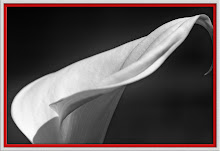






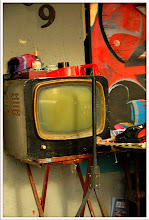

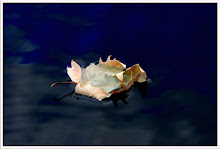
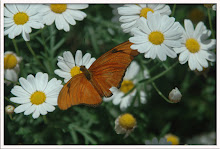
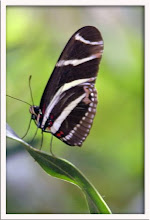

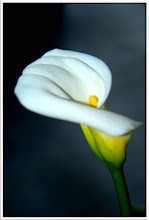


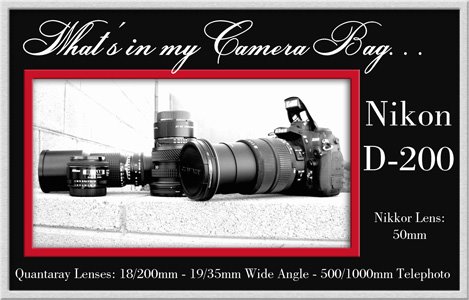
4 comments:
Marta... I'm blushing!!! I'm just like YOU!! Learning everyday... that's what photography is all about... that's what makes it such a passion. Always trying to do better. I take some horrible shots and just look at my blog... you'll see tons of them. But at least we're out there trying... and having fun!!
Thank you for such a compliment, my friend! If only I could get out and get the photos I dream of! LOL!!!
PS... Check out my blog!
Marta I just love you! I think we all struggle with feeling that we don't know enough about our camera. I certainly do! I so enjoy reading your blog and thanks so much for linking to Penny's blog, wow what an inspiration she is!!! Now I really feel insecure, LOL.
Miss you.
Marta,
Its not you, it is that these (modern) digital cameras are so complicated and can do so much (too much really). I still need stay in bed and read the manual for my Pentax K20D DSLR(14MP)camera. I've done film photography for 30 some years and my digital cameras (3 different ones) confuse the hell out of me. Also most cameras today are designed to be used without having to think about what you are doing, yet if you want great pictures you do have to think, and a lot. Planning and lighting are the main keys.
Linda Eastman (later singer/keyboardist Linda McCartney), yes that one, around1968 started doing professional photography assignments of the Beatles and other musicians and personalities with out really knowing what she was doing. She'd shoot Tungsten (light balanced) film with flash or outdoors and get these weird blue shadows. Actually it enhanced her subjects, but was incorrect use of the film. She published several photo books before joining Paul in Wings.
I almost started laughing when I viewed your album of exposure experiments. That is exactly what you would do in the old days and today to really understand photography or in a class -- good job. I had to start that way too. These days I can do the "calculations" in my head. But with the tons of settings and modes on these DSLRs you never know where to start. From what I've seen you have a good eye, just need to work more on the techniques. You might want to take a look at my Blog page http://mike-lamiaceae.blogspot.com/ There are many photographs in various places on it. Some are experimental Infrared photos. Another world in it self. But since I am relatively new to digital photography, little of what is there is up to my best film work (yet). Actually, I think my experience is actually a hinderence in many ways. I have so many lenses (about a dozen) and other equipment I can try that I find it next to impossible to just learn to master one camera with one lens. I'm trying everything at once. Right now I am learning about white balance and camera RAW format files. Yikes! Not the way to learn. I have 4 film SLR's and various other film cameras including a 4x5" view camera. Aside from the 4x5" large format, I had 35mm film about mastered though still had some problems with lighting.
What brand and model camera are you using? You should pick one lens to "master". I would perfer you first not use a zoom lens, but use an appropiate normal prime or fixed focal length lens, like a 28mm or 35mm lens on your DSLR. And manual focus of course, everything manual. Though, at least on mine DSLRs it is not always easy to tell what settings you are actually using. Assuming your camera is not a professional full frame 24x36mm senor format camera (~$4,000-6,000), those lenses would be "normal" lenses for your DSLR, not wide-angle as on a film camera. For cost reasons, you could settle on a standard 50mm lens as that is a good portrait lens for digital. Too learn some of the basics to "manual" photography you might even find a used older "film based" book on ebay or amazon cheap. Say one that explains f-stops, exposure, flash, daylight and other lighting, framing, and posing techniques. You could skip the information on processing film, though some of the printing information is still useful to know. You might even want to borrow or buy a used basic film camera with full manual controls on to learn from (and shoot a little film as well). Depending on your brand you might be able to get a film camera that can share lenses with your DSLR. Mine can. Look at my pics and write back.
Lamiaceae@verizon.net
Post a Comment